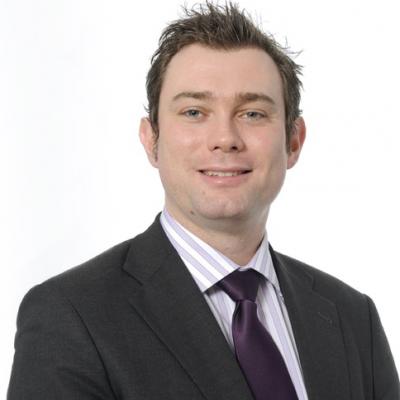Dr Tom Woodcock Programme Lead for Information Intelligence
Organisation: NIHR CLAHRC North West London (at Imperial College London)
- Improvement Science Fellowship
- 2

About me
Tom is a Improvement Science Fellow and Programme Lead for Information Intelligence at NIHR CLAHRC North West London (at Imperial College London).
He has a PhD in mathematics and is currently Principal Information Analyst/Programme Lead for the Collaboration for Leadership in Applied Health Research and Care (CLAHRC) at Imperial College London. He sees health care as a perfect avenue for translating his theoretical concepts into tangible benefits.
Since completing his PhD, Tom has gained intensive first-hand experience working on around 50 multidisciplinary research and improvement implementation projects at the National Institute for Health Research Collaboration for Leadership in Applied Health Research and Care for Northwest London (the CLAHRC).
There is a perception within the improvement science community that traditional quantitative methodologies, such as those used in drug trials, do not generate the insight necessary for properly understanding improvement successes and failures. 'The NHS possesses a huge amount of raw data, and yet the link between that data and valuable information is not as strong as it could be,' says Tom. 'I will be looking at how data is used to evaluate improvement,' he explains. 'I’m expecting to find that statistical hypothesis testing, an approach generally inappropriate for examining a complex intervention in a complex system over a period of time, is most commonly used.'
'I think there are much more appropriate statistical approaches available for analysing data, but they are not yet recognised in the wider scientific community,' he says. 'It is these alternative approaches that I want to explore and appraise.'
Building on earlier work Tom is conducting a literature review then following with hands-on work with four health care teams. He will be stepping the teams through a template he has developed that helps multidisciplinary teams properly measure improvement. 'I’m building on earlier work I’ve undertaken with the CLARHC, with the aim of formalising that approach,' says Tom. 'By evaluating its use prospectively in further improvement initiatives, I’ll be able to see whether my assumptions are true.'
His template supports a systematic approach for measuring for improvement. It addresses the team’s theory and what they aim to achieve, the data they will collect along the way, and appropriate techniques for analysis. 'I’ll also be working with the teams as they develop their interventions and then use the measures in real time to understand how well it is working. I will make sure they are getting the most out of their data and I’ll be helping their organisations build the capacity to interpret data and act in a scientific way.'
Having implemented the template and collected data, Tom will conduct a qualitative evaluation of the template’s use and effectiveness in context. He then hopes to produce a short guide to show how his method can easily be used by other teams. 'I would like to know if my methodology is working and if not, why not. Hopefully I’ll find this is a good approach and something we can advocate to the improvement science community. I really believe we must get the measurement right in order that quality improvement can progress.'
Work with us
We look for talented and passionate individuals as everyone at the Health Foundation has an important role to play.
View current vacanciesThe Q community
Q is an initiative connecting people with improvement expertise across the UK.
Find out more

